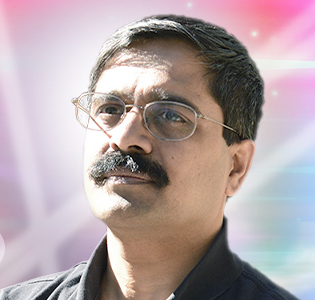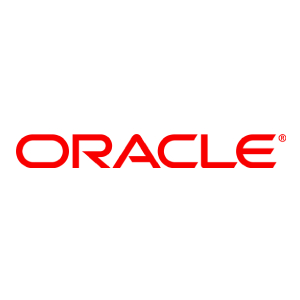Seven Pillar DevOps: Mastering Reflection, Trust and Endurance (Part 3 of 3)

In the first two parts of our series, we explored the fundamental pillars of Unity, Progress, Enlightenment, and Harmony. If you missed Part 1, covering Unity and Progress, click here to catch up. Similarly, for Part 2, where we explored Enlightenment and Harmony, click here to dive into those insights. Now, we venture into the final leg of our journey, where we'll uncover the last three pillars: Reflection, Trust, and Endurance. These pillars draw inspiration from Emperor Ashoka's timeless wisdom and guide DevOps professionals in mastering the art of continuous improvement, building trust, and ensuring the longevity of their systems.
Feedback & Iteration: The Fifth Pillar of Reflection
Emperor Ashoka's transformation after the Kalinga war came from deep introspection and a commitment to learning. In DevOps, this transformational journey finds its parallel in the pillar of Feedback & Iteration. DevOps professionals recognize that the path to excellence requires embracing constructive criticism, implementing feedback loops, and having the capacity to reflect and adapt continually.
a. Embrace Constructive Criticism
Sarah, a seasoned DevOps engineer, introduces a new deployment process that, while functional, raises concerns among some team members due to its complexity. Initially resistant to feedback, Sarah soon recognizes the value of their insights and the opportunity to enhance the process further.
Sarah takes proactive steps by organizing regular feedback sessions, encouraging team members to openly share their experiences with the new deployment process. Embracing constructive criticism, she transforms these insights into actionable improvements, resulting in a more streamlined and efficient deployment procedure.
b. Implement Feedback Loops
Within a tech company, the operations team frequently encounters issues in the production environment that went undetected during testing phases. These incidents lead to recurrent rollbacks and hotfixes, causing disruptions.
Recognizing the need for a more proactive approach, the company opts to implement feedback loops by seamlessly integrating monitoring tools into their CI/CD pipeline. This strategic decision enables the early detection of potential problems, allowing for swift feedback to the development team. Consequently, only stable builds find their way into production, mitigating disruptions and enhancing system reliability.
c. Reflect and Adapt
Following a significant service outage, the DevOps team at a startup conducts a thorough post-mortem analysis. They successfully identify the root cause of the issue but struggle to translate their findings into preventive actions for the future.
To ensure their post-mortem analyses lead to meaningful change, the team embraces a "reflect and adapt" approach. After each incident review, they meticulously catalog actionable insights and prioritize them within their workflow. This proactive stance ensures that they not only identify problems but also adapt their processes to prevent the recurrence of similar incidents.
Etsy: Pillar of Reflection in Action
Etsy, a prominent global e-commerce platform, stands out for its unwavering commitment to feedback and iteration. At Etsy, they practice "blameless post-mortems" where the primary focus is on understanding the root causes of issues and collaboratively discovering ways to prevent them in the future. This culture of continuous reflection and improvement has played a pivotal role in Etsy's capacity to scale and innovate, mirroring the principles of DevOps in action.
Just as Emperor Ashoka's reflection led to a transformative change in his leadership style, DevOps professionals must prioritize feedback and iteration to drive continuous improvement. By embracing constructive criticism, implementing feedback loops, and adopting a mindset of reflection and adaptation, they can ensure that their processes are always optimized for the best outcomes.
Communication: The Sixth Pillar of Harmony
Emperor Ashoka's empire thrived on trust, and in the world of DevOps, Trust finds its embodiment in Security & Compliance. DevOps professionals understand that building trust with users, stakeholders, and within their teams requires a steadfast commitment to security and compliance.
a. Shift-Left Security
In many software companies, security assessments typically occur after the development phase, just before deployment. Unfortunately, this often results in frantic, last-minute efforts to address vulnerabilities, causing delays in releases.
To address this challenge, the company adopts a "shift-left" approach to security, seamlessly integrating security practices early in the software development lifecycle. This proactive strategy involves conducting regular code reviews, employing static code analysis tools, and educating developers about secure coding practices. Consequently, security becomes an intrinsic part of the product right from the outset.
b. Regular Audits & Compliance Checks
A rapidly scaling fintech startup once overlooked regulatory compliance, only to discover their oversight during an external audit. The consequences were severe - substantial fines and a tarnished reputation.
In response, the startup establishes a dedicated compliance team responsible for conducting regular internal audits. Moreover, they invest in automated compliance tools designed to continuously monitor adherence to industry standards and regulations. These measures ensure that they consistently meet and exceed the necessary compliance requirements.
c. Incident Response & Transparency
In a distressing scenario, an e-commerce platform suffers a data breach. Rather than promptly informing their users, they initially attempt to conceal the incident. However, when news of the breach eventually leaks, they face a massive backlash from their user base and the public at large.
Learning from this unfortunate incident, the platform takes decisive action by instituting a robust incident response plan. Crucially, they prioritize transparency, guaranteeing that in any future security incidents, affected parties are promptly informed. This approach not only mitigates potential damage but also rebuilds trust with their user base through open and honest communication.
Google: Pillar of Harmony in Action
Google, a global technology leader, places an unwavering emphasis on security and trust. Their dedicated team, Project Zero, actively hunts for vulnerabilities, not only within Google's products but across the entire internet. Their proactive approach to security, combined with transparent practices, has solidified their reputation as a trustworthy tech giant.
Much like Ashoka's edicts and laws that fostered trust among his subjects, DevOps professionals must prioritize security and compliance to build and maintain trust. Through the early integration of security in the development process, the regular conduct of audits, and a commitment to transparency in their practices, they can ensure that trust is never compromised.
Scalability & Reliability: The Seventh Pillar of Endurance
Emperor Ashoka's vast empire demanded systems that could scale and remain reliable, and in the realm of DevOps, this translates to the pillar of Scalability & Reliability. DevOps professionals recognize the critical importance of constructing systems that can accommodate growth while upholding dependability for long-term success.
a. Design for Growth
Picture a budding e-commerce startup that initially constructs its infrastructure without considering future growth. As their popularity surges, their website becomes plagued by frequent downtimes due to an escalating influx of traffic.
In response, the startup elects to overhaul their infrastructure with scalability at the forefront of their design. They embrace cloud solutions, incorporate load balancers, and implement a microservices architecture. This strategic overhaul guarantees that as their user base expands, their infrastructure can seamlessly accommodate the heightened traffic without sacrificing performance.
b. Implement Redundancy
Imagine an online banking platform that relies solely on a single data center for all its operations. Suddenly, a natural disaster strikes, impacting the data center's location and triggering an extended service outage.
To prevent the recurrence of such catastrophic incidents, the platform adopts a multi-region strategy, distributing their operations across multiple data centers situated in diverse geographic locations. This redundancy ensures that if one center encounters issues, others can seamlessly take over, guaranteeing uninterrupted service.
c. Continuous Monitoring & Testing
Consider a popular streaming service that occasionally grapples with user access issues to certain features. These disruptions are frequently identified by users themselves, leading to a reactive approach to resolving problems.
The service responds by implementing continuous monitoring tools that actively scrutinize system health and potential issues. Additionally, they embrace chaos engineering practices, deliberately introducing controlled failures to assess the system's resilience. This proactive methodology empowers them to spot and rectify potential issues before they impact users.
AWS: Pillar of Endurance in Action
Amazon Web Services (AWS), the cloud computing arm of Amazon, stands as a prime example of the paramount significance of scalability and reliability. AWS caters to millions of active customers monthly, spanning startups to corporate giants across diverse industries worldwide. Their infrastructure is meticulously designed to handle colossal data loads and traffic surges. AWS's global network of data centers ensures that services remain accessible even in the face of data center disruptions. Notably, AWS offers services such as Auto Scaling, which dynamically adjusts resources in response to demand spikes, ensuring applications can efficiently manage load surges without manual intervention. This unwavering focus on scalability and reliability has cemented AWS's status as a leader in the cloud computing industry.
Emperor Ashoka's wisdom continues to serve as an enduring inspiration in the world of DevOps through these seven pillars: Unity, Progress, Enlightenment, Harmony, Reflection, Trust, and Endurance. If you missed Part 1, which covers the foundational pillars of Unity and Progress, click here to catch up. Similarly, for Part 2, where we explored the pillars of Enlightenment and Harmony, click here to delve into those insights. By wholeheartedly embracing these guiding principles, DevOps professionals illuminate a path toward excellence, ensuring that their endeavors are marked by continuous improvement, unwavering trust, and the ability to withstand the test of time.
Have questions or comments about this article? Reach out to us here.
Banner Image Credits: Attendees at Great International Developer Summit









